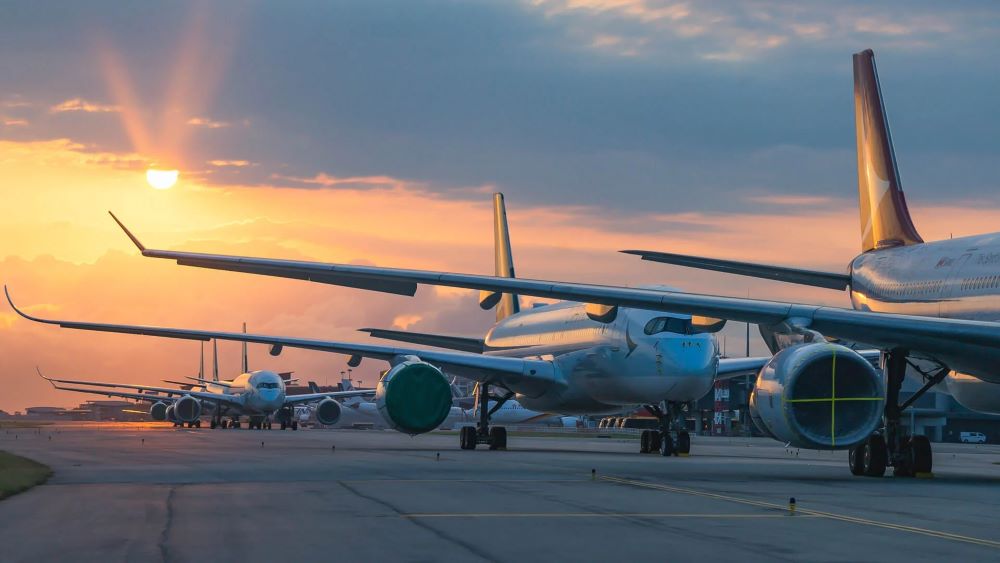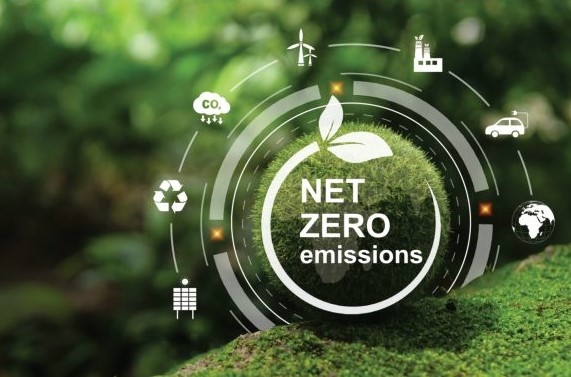New Delhi, October 18, 2022: When the world was planning action to tackle climate change in 2015 in Paris, two key sectors – aviation and shipping – were missing. No one would have thought at that time that these sectors would be actionable anytime soon in this regard. However, in a recent meeting in Montreal, the International Civil Aviation Organization (ICAO) has promised to achieve net zero carbon emissions from air transport by 2050.
The plan was accepted by 193 member countries of the ICAO while China and Russia showed reservations towards it.
US Special Presidential envoy on climate change, John Kerry tweeted, "Thrilled to see international aviation commit at @icao 41st Assembly to a sustainable future with a long-term climate goal... to help put aviation on the path to net zero by 2050."
On the one hand, while the move has been welcomed by many in the aviation sector, it’s been mocked by the non-government organizations, calling it weak and not legally binding basis the fact that ICAO is not a regulating body for the airline industry, but a UN body that promotes co-operation among the member countries on air transport only.
This means that the member nations are not bound to adhere to the ideas and suggestions of ICAO, however, it’s been observed that generally the member nations agree to ICAO.
Another reason that the green organizations believe it’s far from achievable is the challenge of the air transport industry to switch to renewable fuels and the lack of investment in the area to decarbonize aviation.
The global aviation sector contributes to around 2.5 to 3% of the overall CO2 emissions. Now, with the agenda set in place towards 2050, reducing the carbon emissions will need multiple measures that include adopting new and innovative aircraft technologies, well planned flight operations, and the increased production and usage of sustainable aviation fuels (SAF). Thus, it remains a matter of wait and watch as to how airlines and countries put these factors to play in the due course.
India, with 141 airports serving over 200 million domestic and international passengers, is also making efforts to achieve net zero emissions too by 2030. As a part of the 2030 goal, Indian Aviation Ministry has set a target to make around 93 airports carbon-neutral by 2024.
Recently, while attending All India Management Association national convention, Aviation Minister Jyotiraditya Scindia was quoted saying to The Hindu,"One of the first things that I did when I took over as the aviation minister was to put a carbon mapping profile of our airports. Two of our airports, Delhi and Kochi, are already carbon-neutral and India will have 92-93 carbon-neutral airports by 2024. It is about time we set up an ecosystem...just like the automobile sector...it should not be about airlines and airports but about flying and training organizations, about cargo, ground handling and drones. And the steps to develop such an ecosystem are being firmly taken."
India has been putting its foot forward to reach the goal of net zero emissions with actions like carbon mapping of the airports for quite some time now. Currently, out of the total 141 existing airports, Delhi and Kochi airports are already carbon-neutral.





















.jpg)



